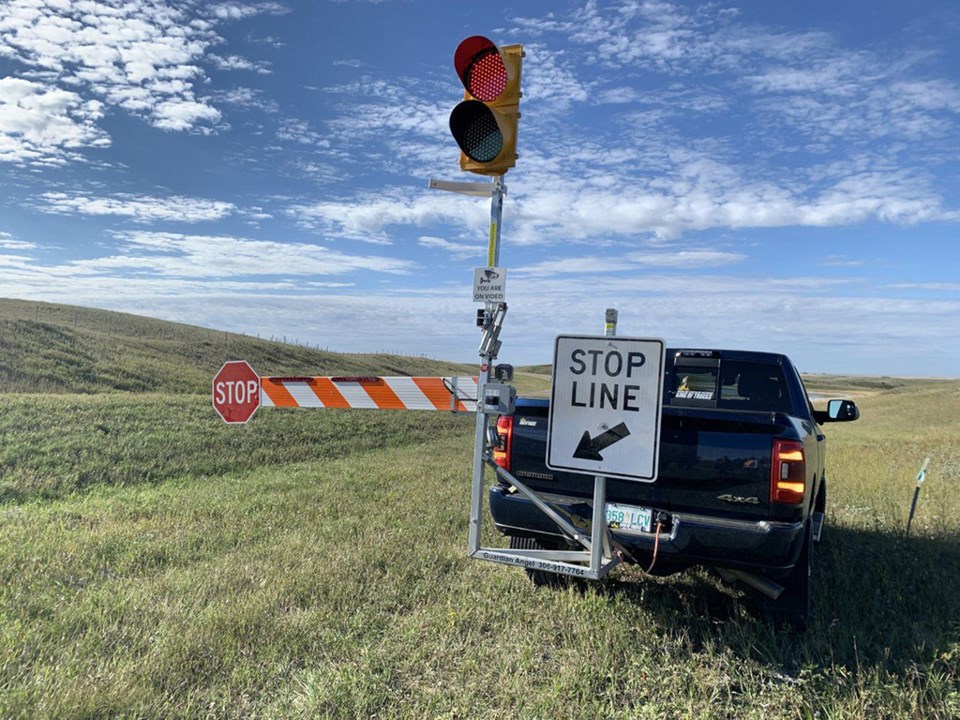WATROUS - The death of Ashley Richards in 2012 as she was working the first day of her job as a flagger in a construction zone inspired a couple from Watrous to help make the job safer.
Kim and Donna Kreutzer decided to create the Guardian Angel Autoflagger, a device that allows the flag person to operate the arm stopping traffic from a safe distance. They have one major new client, the Province of Saskatchewan.
“When Ashley Richards got killed about eight years ago in Midale, they decided there had to be a better way to keep people safe,” said Edward Anderson during a news conference the morning of Sept. 7 when the province unveiled the new devices. Anderson is the marketing manager for Guardian Angel Autoflagger Manufacturing.
“The secret to our machine compared to the other ones is it’s mounted on a truck or any receiver hitch and plugs into the trailer plug,” said Anderson.
Unlike larger devices, the one created by the Kreutzers is easy to move around and more suitable for smaller jobs like highway patching.
Set up is very quick and can be done without the operator ever having to be on the highway.
To run it, the flag person sits in the vehicle and moves the arm up or down without getting out and can move as needed.
In the pilot program, Moose Jaw and Outlook will join Prince Albert in assessing how effective the devices are, the province said.
“We’ve been working hard to improve the safety of Saskatchewan highways,” said Highways Minister Fred Bradshaw.
Bradshaw, who lives near Carrot River, brought up an incident in which three members of the Carrot River Wildcats football team were killed in collision in 2015.
“At that time, the flagger was also injured,” said Bradshaw. “This will be very visible and this is what we can have out there to save lives.”
Bradshaw said he is hopeful the devices will soon be in use across Saskatchewan highways once the pilot project is complete.
Near misses, miscommunications and feedback from the flag person will help the province calculate the effectiveness of the device. A video camera on the device records in loops so there is a record of any incidents that might happen.
The province has purchased six for the pilot project but Guardian Angel has also sold some to private industry, such as a towing company.
Two of the flaggers will be based in Prince Albert and serve the northern district, two are in Saskatoon for that area and two have been placed in Moose Jaw for use in more southern areas.
Anderson said that on average in North America, a tow truck driver is killed every nine days and fire departments have also expressed interest.
In response to a question, Anderson said the device does not replace flag people as it requires a person to operate it.
“All it does is put the flagger out of harm’s way,” he said, adding that people he has talked to in the construction industry refuse to allow their family to work the flag person job just based on how dangerous it can be.





